第48章
There is considerable force in these arguments. I will not venture to decide whether they are sufficient to justify the moral anomaly of punishing the accessary, when the principal is (and must be)allowed to go free; of fining or imprisoning the procurer, but not the fornicator- the gambling-house keeper, but not the gambler. Still less ought the common operations of buying and selling to be interfered with on analogous grounds. Almost every article which is bought and sold may be used in excess, and the sellers have a pecuniary interest in encouraging that excess; but no argument can be founded on this, in favour, for instance, of the Maine Law; because the class of dealers in strong drinks, though interested in their abuse, are indispensably required for the sake of their legitimate use. The interest, however, of these dealers in promoting intemperance is a real evil, and justifies the State in imposing restrictions and requiring guarantees which, but for that justification, would be infringements of legitimate liberty.
A further question is, whether the State, while it permits, should nevertheless indirectly discourage conduct which it deems contrary to the best interests of the agent; whether, for example, it should take measures to render the means of drunkenness more costly, or add to the difficulty of procuring them by limiting the number of the places of sale. On this as on most other practical questions, many distinctions require to be made. To tax stimulants for the sole purpose of making them more difficult to be obtained, is a measure differing only in degree from their entire prohibition; and would be justifiable only if that were justifiable. Every increase of cost is a prohibition, to those whose means do not come up to the augmented price; and to those who do, it is a penalty laid on them for gratifying a particular taste. Their choice of pleasures, and their mode of expending their income, after satisfying their legal and moral obligations to the State and to individuals, are their own concern, and must rest with their own judgment. These considerations may seem at first sight to condemn the selection of stimulants as special subjects of taxation for purposes of revenue. But it must be remembered that taxation for fiscal purposes is absolutely inevitable;that in most countries it is necessary that a considerable part of that taxation should be indirect; that the State, therefore, cannot help imposing penalties, which to some persons may be prohibitory, on the use of some articles of consumption. It is hence the duty of the State to consider, in the imposition of taxes, what commodities the consumers can best spare; and a fortiori, to select in preference those of which it deems the use, beyond a very moderate quantity, to be positively injurious. Taxation, therefore, of stimulants, up to the point which produces the largest amount of revenue (supposing that the State needs all the revenue which it yields) is not only admissible, but to be approved of.
The question of making the sale of these commodities a more or less exclusive privilege, must be answered differently, according to the purposes to which the restriction is intended to be subservient.
All places of public resort require the restraint of a police, and places of this kind peculiarly, because offences against society are especially apt to originate there. It is, therefore, fit to confine the power of selling these commodities (at least for consumption on the spot) to persons of known or vouched-for respectability of conduct; to make such regulations respecting hours of opening and closing as may be requisite for public surveillance, and to withdraw the licence if breaches of the peace repeatedly take place through the connivance or incapacity of the keeper of the house, or if it becomes a rendezvous for concocting and preparing offences against the law. Any further restriction I do not conceive to be, in principle, justifiable. The limitation in number, for instance, of beer and spirit houses, for the express purpose of rendering them more difficult of access, and diminishing the occasions of temptation, not only exposes all to an inconvenience because there are some by whom the facility would be abused, but is suited only to a state of society in which the labouring classes are avowedly treated as children or savages, and placed under an education of restraint, to fit them for future admission to the privileges of freedom. This is not the principle on which the labouring classes are professedly governed in any free country; and no person who sets due value on freedom will give his adhesion to their being so governed, unless after all efforts have been exhausted to educate them for freedom and govern them as freemen, and it has been definitively proved that they can only be governed as children. The bare statement of the alternative shows the absurdity of supposing that such efforts have been made in any case which needs be considered here. It is only because the institutions of this country are a mass of inconsistencies, that things find admittance into our practice which belong to the system of despotic, or what is called paternal, government, while the general freedom of our institutions precludes the exercise of the amount of control necessary to render the restraint of any real efficacy as a moral education.